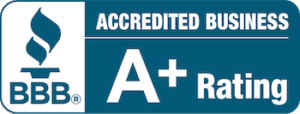Understanding Credit Reports and Collections
Credit collections are reported by credit bureaus when you fail to settle your bills thereby leading to the participation of a collector in trying to reach you. All these debts may negatively influence global credit status showing loaners that you are not trustworthy enough due to poor ratings from previous agreements such as medical collections or credit card debts, for old collections for example.
Credit reports contain records of collections; this reflects the status of your unpaid loans. – Most importantly, it is essential to ensure that these reports are accurate since any wrong information can worsen your credit ratings even more than they already are. For example, medical collections, and delinquent credit card debts make people unable to borrow money.
What are collections and how do they affect your credit history?
Collections are the accounts sent to an agency after you do not have paid your bills. These can be medical bills, credit card debt or other obligations that have not been settled. If a bill collector is sent to collections, debt becomes a derogatory mark on someone’s credit history causing a significant reduction on his or her credit score.
The long-term effect of collections on your financial situation can be detrimental. For instance, collection accounts may stay on your credit report for as much as seven years even if you settle them. This negative record may hinder you from getting more credit such as mortgages hence leading to high loan interest rates when one gets approved for such loans.
How do credit bureaus report collections on your credit report?
Detailed information about the collection account is included on your credit report by credit bureaus to show collections. This data always indicates the original creditor, the outstanding balance, recent collection account and the status of the debt. Each collection stands alone affecting your credit score at large.
Credit bureaus are informed by collection agencies of debts taken over by them. Therefore, your credit report gets updated accordingly by all three credit bureaus. Thus it is always advisable that you regularly review your credit reports for accuracy. Errors and outdated information could be disputed with credit bureaus under the Fair Credit Reporting Act.
The Impact of Collections on Mortgage Eligibility

Collections can have a large effect on whether or not you can get approved for a mortgage. It’s by looking at credit scores that lenders decide whether or not someone deserves credit, and since collections decrease these scores then getting approved becomes problematic too. To a lot of mortgage lenders, collections represent evidence of weak finances.
Your debt to income ratio (DTI) is another huge part of mortgage approval. Through collections; all these up your total debt thereby pushing up the DTI hence complicating your efforts even more to get a mortgage. This simply implies that most of your salary goes into repaying debts, and as such; it could spell trouble for those intending to borrow money in future.
How collections affect your credit score and mortgage approval
Collections can lower your credit rating and reduce your chance of being approved for a mortgage. Such collections indicate that you have mishandled your financial obligations in the past, therefore casting doubts on your capacity to repay the mortgage. Lower credit ratings will often attract higher interest rates upon approval.
Mortgage loan approval often becomes challenging with collections on your credit report . For you to qualify for a loan, the lending institutions may want those debts cleared first before they consider processing your application forms even if doing so won’t affect anything else that relates to you seeking such financing solutions. It is therefore important to aim at early addressing this matter by rectifying them in advance before putting across any requests for home finances from any provider.
Debt-to-Income Ratio and its significance in mortgage approval
The DTI or debt-to-income ratio quantifies your debt payment every month in terms of percentage against your income within the same period. This is what lenders who want to see if you can handle monthly mortgage payments check. A high DTI indicates that you may not handle much more debt payments hence if you need mortgage credit facilities be prepared to get disapproval.
To boost your DTI, you should start by settling some loans while increasing the earnings in order to meet the targeted one. Reducing your DTI may serve towards an enhanced mortgage application, which makes it evident that you earn enough to be able cater for another loan installment. Proper management at this point can bring the difference between getting approved for a home loan or not.
Factors Lenders Consider in Mortgage Applications

When reviewing mortgage applications, lenders look at several things. This includes:
- A consistent amount of money coming in each month.
- The amount of debt that already exists, as well as how much people pay towards it each month.
- The ability to be trusted with money, even when things are not going well.
- Jobs that someone has had for a long time are preferred.
- Having stashed away enough money that can be used as a deposit for home purchase or other emergency cases.
If borrowers understand these things, it will be easier for them to prepare their loan requests well enough from the start by addressing any possible concerns raised by loan officers or the financiers.
Income and debt stability
When mortgage lenders review applications, they pay most attention to earnings stability. It demonstrates that an individual has the adequate funds required for regular mortgage repayment. Defendants usually interpret consistent earnings coupled with job longevity positiveness.
The amount of money borrowed should be controlled in order to avoid any trouble. A debtor demonstrates that he pays his or her monthly installments by borrowing lesser money hence reducing the risk.
Appraised value of the property
To approve a mortgage application it is necessary that the property should be evaluated for its worth. Lenders want to know how much your home is worth and therefore, need an appraisal which must equate with your loan amount. An appraisal below the purchase price could complicate matters during the approval phase with the mortgage broker.
In addition, a higher appraisal will positively affect one’s mortgage application status since this ensures lenders of their security when investing into such real estates. Your share of the property will also go up through high values implying possible better credit conditions and reduced interest rates for many mortgage lenders.
Down payment and its impact on mortgage approval

There are several possible advantages of paying a bigger part of the home price at once: first, it means that there is hardly any chance left for you not be approved for a loan as this way the risk factor gets decreased; secondly, a substantial payment decreases the amount of a loan that is attributed to the property value and this is favorable to the lender.
At the same time, a buyer does not have to pay for costly PMI in case he or she makes a substantial down payment.
Saving for a bigger home deposit can be seen as a way to show that you can take responsibility for your finances as well as commitment to buying a house. Besides, having more money at hand as a result of property investments will give you higher bargaining power than others when seeking credit facilities or negotiating loan repayment terms with creditors. Basically, a large sum put down on a mortgage application could serve to increase its respectability and thus contribute towards ensuring its acceptance.
Managing Debt in Collections
When it comes to improving your credit score, it is important to know how to handle debt in collections. Some of the things you can do include:
- Talking to the debt collectors so that they can lower the amount you owe them.
- Setting up payment plans that allow you to settle your debts in small bits.
- Confirming whether the local statute of limitations bars the company from collecting the debt.
- Asking that any settlements paid off are removed from your credit history.
- Keeping track of alterations or updates on your credit profile.
Strategies for handling new and old collections

When you have new large sets, work out financial plans with collectors first to prove your will in settling debts and keeping your Score better. Settle older warrants at an amount lower than what is owed.
Knowing the statute of limitations for debts in your area is important. When this duration ends, it means that legally none can come reclaiming money anymore and hence such points must disappear from our records if we wish so. It helps in managing old debt or newly initiated sets alike.
Importance of checking local statute of limitations
It is important to understand how long somebody has before they are required to make payment because each state has its own rules. Which categories vary from state to territory? Debtors have three years four year six sometimes even seven depending on where they live.
Looking at the statute of limitations would enable you to know how to go about the repayment plan for past liabilities. Where debts have become extinct due to expiry periods running out or discharge in bankruptcy and life insurance takes care of such situations as deaths in addition there are other problems too.Knowing what steps you need to take if there is difficulty in accessing your account profits early would be useful hence reading through them carefully.
Setting up payment plans and negotiating with collection agencies
Creating a payment plan with collection agencies is a great way to deal with your debt. Most organizations pay collections and are okay with restructuring how one will repay them based on their earnings. Making monthly payments each month helps you to maintain a good credit rating and prove your maturity.
There are times when you could also settle some debt for less than what you owe. Remember to have any agreement you make documented and save receipts for all cash transactions done. Therefore, coming to reasonable terms with account recovery agents promotes your borrowing history.
Medical Collections and Mortgage Approval

Medical collections usually enjoy higher tolerance during mortgage approval processes.
In order to raise your odds of getting mortgage approval, dialogue with hospitals on ways of settling medical bills if any exist in their system. This is because some hospitals and debt collectors can be more understanding particularly when hardship cases are brought on board. If you erase all the medical debt collection reports from your credit file, you will have escalated your score hence more eligible for the loan.
More leniency for medical collections in mortgage approval
Medical debts are sometimes considered less critically by lenders compared to any other borrowing. Thus medical debts often appear abruptly with no guarantee of liability. It implies that unpaid medical debts seldom bar people from owning homes.
To get this preference, one’s credit profiles must have accurate information on medical collections. One may as well try talking to the medical provider or collection agency so that these debts are reduced or removed. Thus effectively managing medical collections improves your credit standing and increases likelihoods of mortgage approval.
How to negotiate medical collections and remove them from your credit report
Discussing donations for healing is necessary; hence, communicate with the medical service provider or the debt collection agency. Most are agreeable to approving partial payment, a reduced sum or an installment payout plan. It is important to put everything down in writing so that you have proof in future in case of disputes and then ask for a letter acknowledging closure of existing arrears.
When you clear the balance or pay off any remaining dues make sure there is a credit report showing absence this item purchase history development; sometimes companies agree to take out medical bill from the report after being paid, commonly referred to as Pay for deletion, in order reinstate one’s borrowing status Hence, filing Read more if you require help.
Improving Your Credit Report for Mortgage Approval
Enhancing your credit report is so meaningful due to eligibility requirements for home loans. The first step is to check for any errors or inaccuracies in your credit report.
Such steps will eventually result into high credit scores which portray people with such as worthy candidates—from whom lenders can seek mortgage approvals.
Checking your credit report for errors and inaccuracies
It’s important to routinely review your credit report for errors and inaccuracies because they may bring down your credit score hence decrease your chance of getting a loan. There are three major credit bureaus from which you should obtain your credit report, then examine it keenly to ensure there are no variations.
you can challenge errors when you spot them with credit bureaus. Provide proof for challenging the report and make sure those mistakes are no longer there. This will help in elevating your credit score by making the necessary amendments hence improving your loan application.
Fixing mistakes and improving your credit score

To correct mistakes on your credit report, get in touch with the credit bureaus with evidence for your dispute. You will raise your credit rating by quickly rectifying such errors. Furthermore, you should focus on bettering it by repaying debts and adhering to payment deadlines.
If you practice good credit habits in the future, you will end up with a higher credit score making it easier for you to qualify for home loans. Eventually, they can notably limit your chances to qualify for a home loan.
Lowering your Debt-to-Income Ratio for better mortgage eligibility
To improve mortgage eligibility, one must reduce their debt-to-income ratio (DTI). By paying back any loans already in existence, individuals are able to cut off part of what they owe on a monthly basis while at same time lowering their overall DTI amount, leading it down such that they qualify for other loans. Job hopping may lead to an upsurge in one’s earnings whether in the form of increased salaries or performing multiple work roles such as freelancing.
In case your new mortgage payment is likely to exceed thirty-six percent of take-home remunerations then strive hard to maintain DTI below that figure so that the bank can accept your proposal. To apply for house loans favorably, manage your exposure effectively thereby giving rise to improved mortgage loans and conditions.
Understanding the pros and cons of each option
Borrowers with collections have a variety of mortgage options, each with its own advantages and disadvantages. One pro of FHA loans is the low down payments, though they require mortgage insurance too. On the other hand, the benefits of VA loans are excellent, although they are only accessible to those who served in the military. Alternatively, USDA loans are specifically designed for rural areas, although stringent location requirements should always be met.
While permitting greater latitude in form, Non-qualified mortgages come with a higher rate; however; its rate of fluctuation is low. For people with poor ratings, subprime mortgages could be thought of as harsh. However, such loans are expensive with unfavorable conditions. By looking at these positives or negatives, one can choose the most appropriate home loan type for his needs.
Conclusion
Ensuring your mortgage gets approved is primarily dependent on the management of collections that are shown on your credit report. You can increase the likelihood of your mortgage application getting approved by managing collections, negotiating settlements and working toward a higher credit score.
Essential steps in this regard include understanding how collections affect your credit report and considering other possible mortgage options.





























